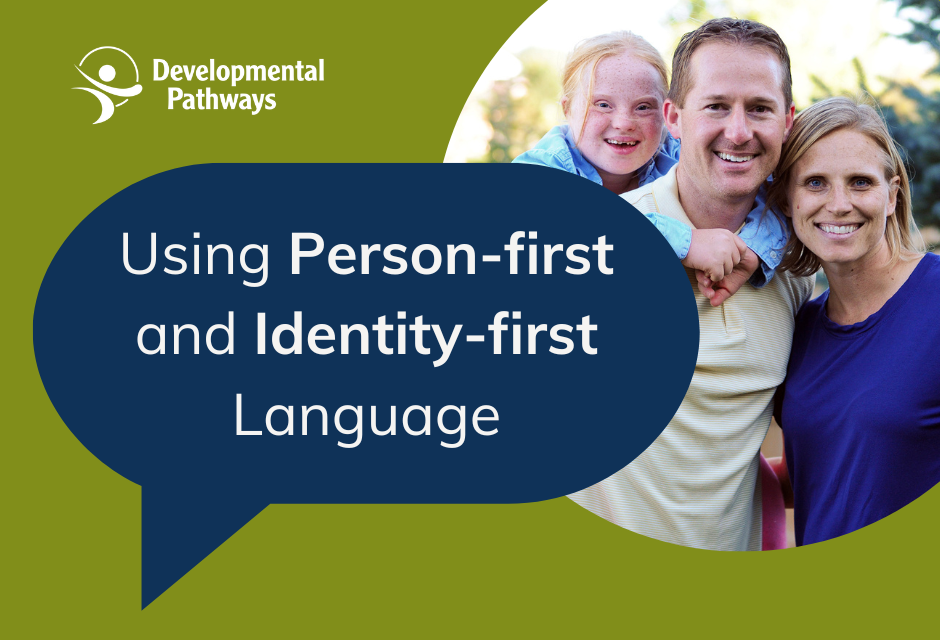When discussing individuals with disabilities, you may hear people use both person-first language and identity-first language. You might wonder: “Which one should I use?”
Staff at DP typically use both approaches when speaking about the services and diagnoses of individuals and families depending on their personal preferences. We hope to offer a brief explanation of these two choices, why they are different, and why we recommend using either, depending on the situation.
What is Person-First Language?
Person-first language (PFL) emphasizes personhood first in the description, distancing the person from the disability and/or diagnosis. Supporters of PFL feel that it is essential to focus on the person rather than their diagnosis so that it does not define them.
Examples include “person with disabilities” or “an individual with I/DD.” PFL is generally used for individuals with I/DD, especially children under 18. In recent years, PFL has been used in legislation and policy work, as well as in the medical/scientific community.
What is Identity-First Language?
Identity-first language (IFL) emphasizes the disability and/or diagnoses first in the description, focusing on the role a disability has in shaping a person’s identity. Supporters of IFL feel that it embraces all aspects of one’s identity, and it is preferred by many disability advocates who see it as a way to signify pride in one’s identity. Some members of these communities also choose to capitalize Deaf, Blind, or Autistic.
Examples include “Autistic person” or “disabled person”. When speaking about blindness, deafness, and autism, the national trend is to refer to adults with those diagnoses with identity-first language.
Which should you use?
We acknowledge the power of language and know that a single approach would only meet the preferences of some. Developmental Pathways strives to be a person-centered organization. Therefore, we work hard to be respectful of an individual’s language choice and be inclusive to all. Individuals with disabilities tend to have very strong opinions on this topic—either strongly preferring identity-first language or person-first language. We aim to honor the use of both depending on the individual.
DP will continue to stay up to date on current linguistic trends in the disability community, as well as listen to the needs and voices of those we serve. Language is constantly evolving, and we work hard to ensure all identities are respected and honored when communicating.
We welcome feedback! For questions or comments, please reach out to info@dpcolo.org.
We also encourage you to further explore this topic and learn more! Check out the resources linked below for more information.
Sources:
- https://pubmed.ncbi.nlm.nih.gov/36237135/
- https://www.ameridisability.com/autistic-vs-person-with-autism-lets-talk-about-disability-language/
- https://www.nih.gov/about-nih/what-we-do/science-health-public-trust/perspectives/writing-respectfully-person-first-identity-first-language
Learn More:
- https://autisticadvocacy.org/about-asan/identity-first-language/
- https://disabilityunion.co.uk/person-first-or-identity-first-the-importance-of-language/
- https://disabilityrightstx.org/en/2023/04/13/identity-first-language-vs-people-first-language/
- https://ncdj.org/style-guide/
- https://specialolympicsco.org/language/

